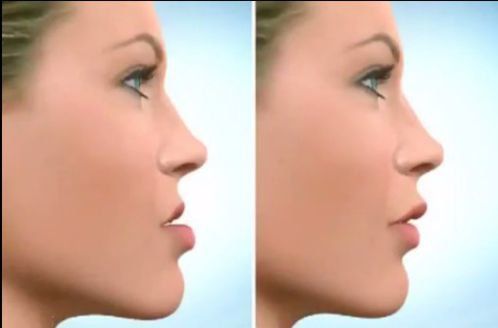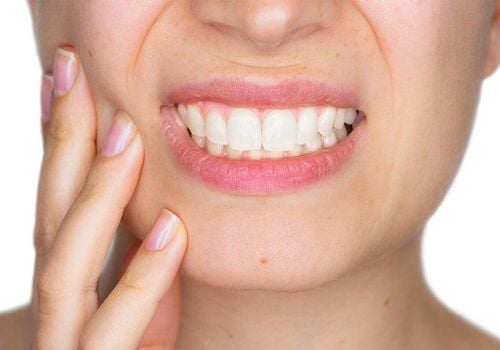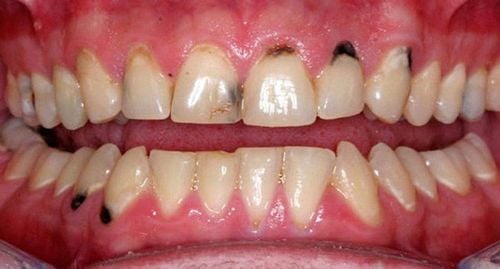The issue of a child’s tooth taking a long time to grow back is something many parents are concerned about during the baby tooth replacement stage. So how long does it take for a baby tooth to grow back after extraction, and does the delay in tooth eruption affect the child’s oral health?
1. How Long Does It Take for a Baby Tooth to Grow Back?
Normally, the process of replacing baby teeth with permanent teeth begins around the age of 6, and by 12 years old, the full set of permanent teeth usually erupts.
At the time of tooth replacement, baby teeth will become loose and eventually fall out, after which permanent teeth will grow in. The time it takes for permanent teeth to grow after baby teeth fall out varies depending on the individual child, but it usually ranges from 1 to 2 months, with girls generally having their teeth grow back faster than boys.
The order in which baby teeth are lost and replaced by permanent teeth, and the age at which this occurs, is as follows:
- The first tooth to be replaced by a permanent tooth is the front baby tooth, which happens between 6 and 8 years old. The permanent tooth will grow in approximately 2 to 4 weeks.
- When children reach 10 to 12 years old, the baby canine teeth will fall out, and permanent teeth will grow in 2 to 4 weeks after.
- The baby premolars start being replaced by permanent teeth between the ages of 9 and 11, and permanent teeth will typically grow in 1 to 2 months after that.
- The molars are the last to be replaced, around the age of 10 to 12 years old.
The number of roots of a tooth also significantly impacts the time it takes for permanent teeth to emerge after baby teeth fall out. Incisors and canines only have one root, so they are replaced within 2 to 4 weeks, while molars have multiple roots and typically take 1 to 2 months.
Additionally, some factors can influence the timing of tooth replacement, such as when there is a large gap left after a baby tooth falls out, the permanent teeth may grow in more quickly compared to those that are crowded or misaligned. Bad habits common among children, such as pushing their teeth, biting pens, etc., also contribute to the timing of permanent tooth eruption.
2. Reasons for Delayed Tooth Eruption
Delayed tooth eruption can occur due to several reasons, including:
- Impacted or Misaligned Teeth: These teeth do not grow straight up into the space left by the fallen baby tooth, but instead, they may grow into neighboring teeth, leading to a longer eruption time.
- Gum Fibrosis: This condition causes the gum tissue to become thickened, making it more difficult for the tooth to emerge.
- Lack of Tooth Bud: A missing tooth bud can be due to a congenital condition during fetal development or damage to the bud from accidental trauma.
- Nutritional Deficiencies: When a child does not receive necessary nutrients, especially calcium, it can delay the tooth replacement process.
- Poor Habits: Habits such as tongue thrusting, thumb sucking, teeth grinding, or bottle-feeding can contribute to delayed tooth eruption.
3. What Consequences Can Occur If the Tooth Takes Too Long to Erupt?
When a baby tooth falls out and the permanent tooth takes too long to emerge, it can lead to potential oral health problems. If the eruption is delayed beyond the normal time frame, it can lead to several complications:
- Impacted or Misaligned Teeth: Delayed eruption can cause the teeth to damage the adjacent teeth and gums, leading to swelling and abscesses.
- Bone Resorption: If a tooth is lost for too long, it can reduce the pressure on the jawbone at the site of the missing tooth, causing bone loss. This can result in a smaller dental arch, leading to malocclusions, such as an overbite or underbite, and even jawbone inflammation.
- Misalignment: A prolonged gap where the tooth is missing can cause the adjacent teeth to shift, leading to misalignment, crooked teeth, and other dental issues.
4. What Should Parents Do When Their Child’s Teeth Are Growing Slowly?
- Create a balanced diet for your child, including nutrients such as vitamin A, B, D, calcium, zinc, and magnesium. These nutrients should be included in your child’s diet during the development stages, especially during the baby tooth replacement period.
- Limit foods high in starch, such as sweets and sugary drinks like sodas, as well as foods and drinks that are too hot or cold to avoid delaying the eruption of the child’s teeth.
- Teach your child to properly clean their teeth at least twice a day, especially after meals.
- Encourage the child to avoid bad habits like pushing their tongue against their teeth or sucking their thumb.
- Schedule regular dental checkups every 3 to 6 months so the dentist can monitor the child’s tooth replacement progress and ensure normal dental development.
In general, the time it takes for permanent teeth to grow after baby teeth fall out varies depending on the child’s body, but it usually ranges from 1 to 2 months, with girls generally having their teeth grow back faster than boys.
Please dial HOTLINE for more information or register for an appointment HERE. Download MyVinmec app to make appointments faster and to manage your bookings easily.













